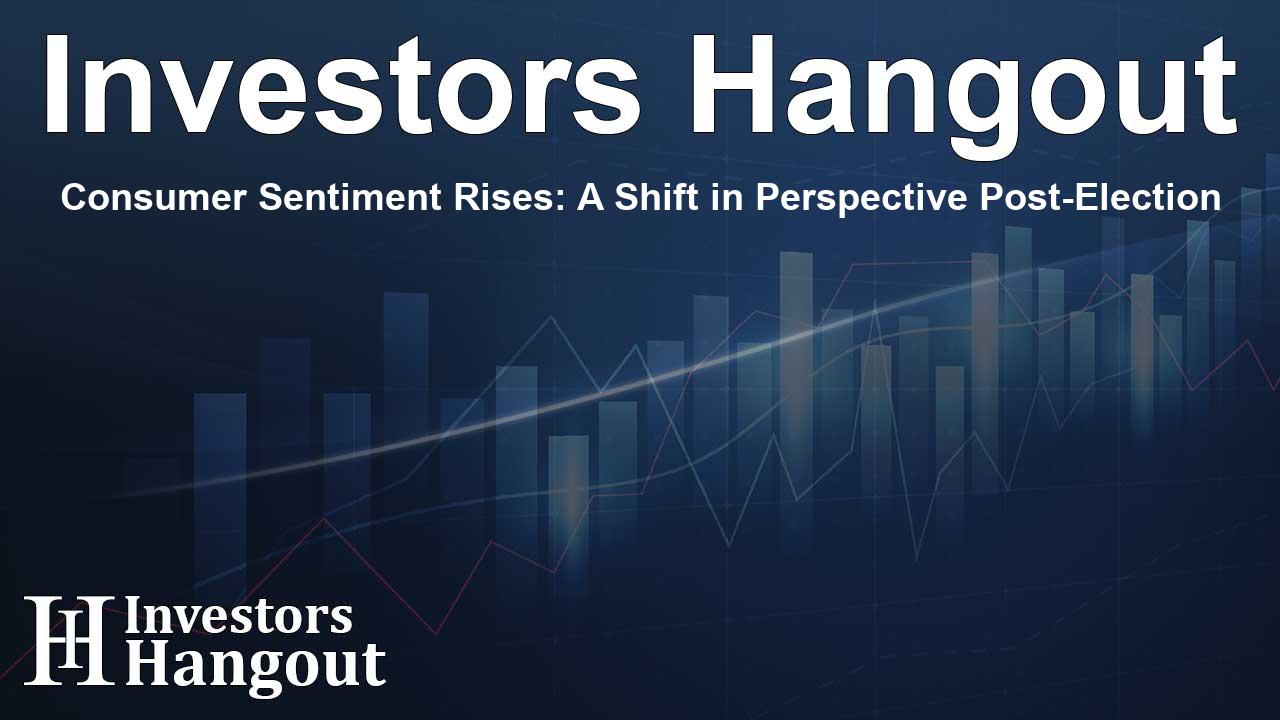Consumer Sentiment Rises: A Shift in Perspective Post-Election

U.S. Consumer Sentiment Experiences a Notable Increase
U.S. consumer sentiment experienced an upward trend for the fourth consecutive month this November, as favorable feelings surged particularly among Republicans after the recent presidential election results. This upward shift indicates a significant change in the mood of American consumers, with potential implications for the economy moving forward.
Understanding the Consumer Sentiment Index
The University of Michigan's Consumer Sentiment Index has reached 71.8 this month, marking a rise from 70.5 in October. This index is a key indicator of consumer attitudes, reflecting their sentiments about current economic conditions and their expectations for the future. However, this increase fell short of economists' expectations, who had predicted a more robust reading of 73.7, highlighting differing views among economic analysts.
The Partisan Divide in Sentiment
Interestingly, this increase in sentiment is closely tied to partisan perspectives. Joanne Hsu, the Director of Surveys of Consumers, noted that while national sentiment reflects stability, the underlying partisan dynamics tell a different story. After the election, Republicans experienced a significant increase in expectations for economic outlook, rising by 15.5 points. In stark contrast, the sentiment among Democrats saw a decline of 10.1 points, suggesting a polarization in how different groups view economic policies and their future impacts.
Independents' Views on the Economic Landscape
Moreover, political independents displayed a slight decrease in sentiment, indicating that their outlook is not as favorable as that of Republicans. This demographic, which has been known to sway elections, showed a narrower preference for the Democratic nominee in exit polls, complicating the overall sentiment picture.
Inflation Expectations Amidst Shifting Views
Alongside changes in sentiment, households continue to anticipate modest inflation in the coming year. The survey indicated that one-year inflation expectations have decreased to 2.6%, the lowest level in nearly three years. However, expectations for inflation over five years have increased to 3.2%, the highest level in a year, suggesting that consumers are becoming increasingly concerned about the potential for escalating prices under the new administration.
Economic Policies and Their Potential Effects
This mix of sentiment and inflation expectation points to the potential ramifications of the incoming administration’s economic policies. Many economists warn that Trump's strategies, which may include tax cuts and increased tariffs, could ignite inflationary pressures in an already struggling economy.
Considerations for Future Economic Outlook
The divergence in sentiment among different political groups, combined with the fluctuation in inflation expectations, paints a complex picture of the current U.S. economic landscape. As consumer attitudes play a critical role in shaping economic trends, monitoring these fluctuations will be essential for understanding the health of the economy in the months to come.
Frequently Asked Questions
What is the Consumer Sentiment Index?
The Consumer Sentiment Index measures consumer attitudes regarding the economy, reflecting their feelings about current conditions and future expectations.
How has the sentiment changed post-election?
Post-election, there has been a notable increase in sentiment among Republicans, while Democrats have reported a decline, highlighting a partisan divide.
What are current inflation expectations?
One-year inflation expectations have fallen to 2.6%, while five-year expectations have risen to 3.2%, signaling varying consumer perspectives on price changes.
How do political views affect consumer sentiment?
Political views significantly impact how consumers feel about the economy, with partisans often reflecting differing outlooks based on their preferred political figures and policies.
Why is consumer sentiment important?
Consumer sentiment is crucial as it can influence spending behaviors, which in turn affect overall economic performance.
About Investors Hangout
Investors Hangout is a leading online stock forum for financial discussion and learning, offering a wide range of free tools and resources. It draws in traders of all levels, who exchange market knowledge, investigate trading tactics, and keep an eye on industry developments in real time. Featuring financial articles, stock message boards, quotes, charts, company profiles, and live news updates. Through cooperative learning and a wealth of informational resources, it helps users from novices creating their first portfolios to experts honing their techniques. Join Investors Hangout today: https://investorshangout.com/
Disclaimer: The content of this article is solely for general informational purposes only; it does not represent legal, financial, or investment advice. Investors Hangout does not offer financial advice; the author is not a licensed financial advisor. Consult a qualified advisor before making any financial or investment decisions based on this article. The author's interpretation of publicly available data shapes the opinions presented here; as a result, they should not be taken as advice to purchase, sell, or hold any securities mentioned or any other investments. The author does not guarantee the accuracy, completeness, or timeliness of any material, providing it "as is." Information and market conditions may change; past performance is not indicative of future outcomes. If any of the material offered here is inaccurate, please contact us for corrections.